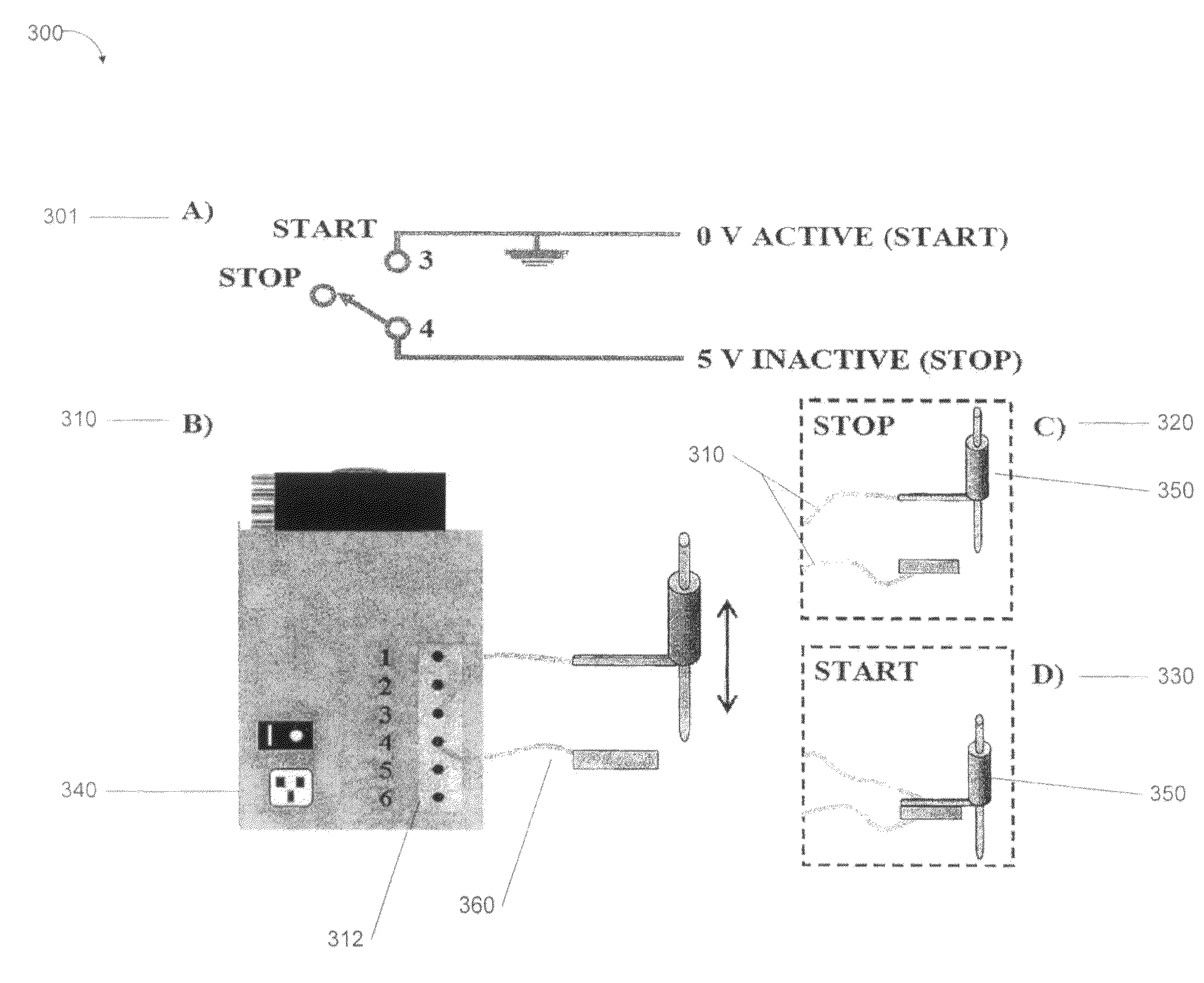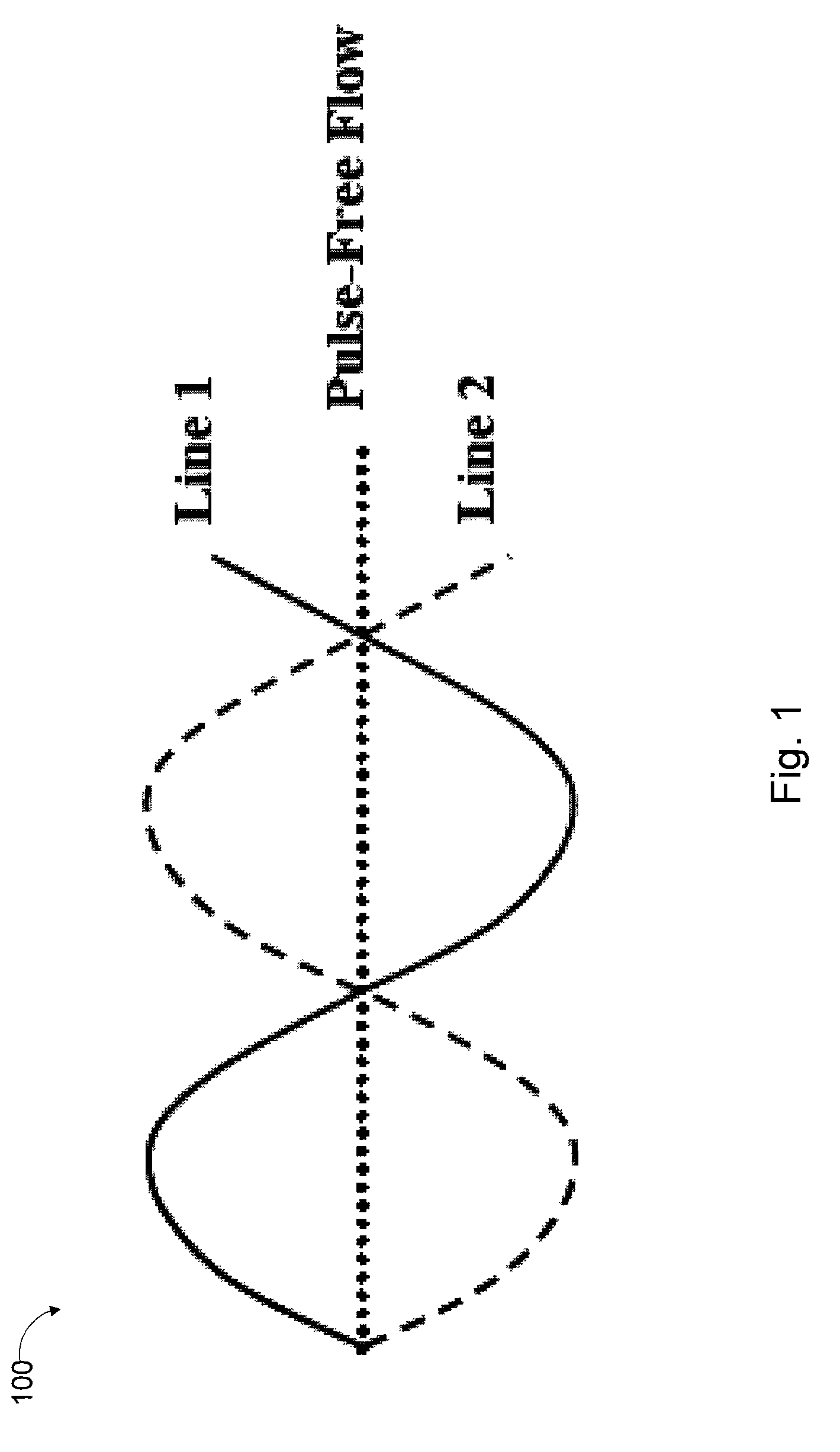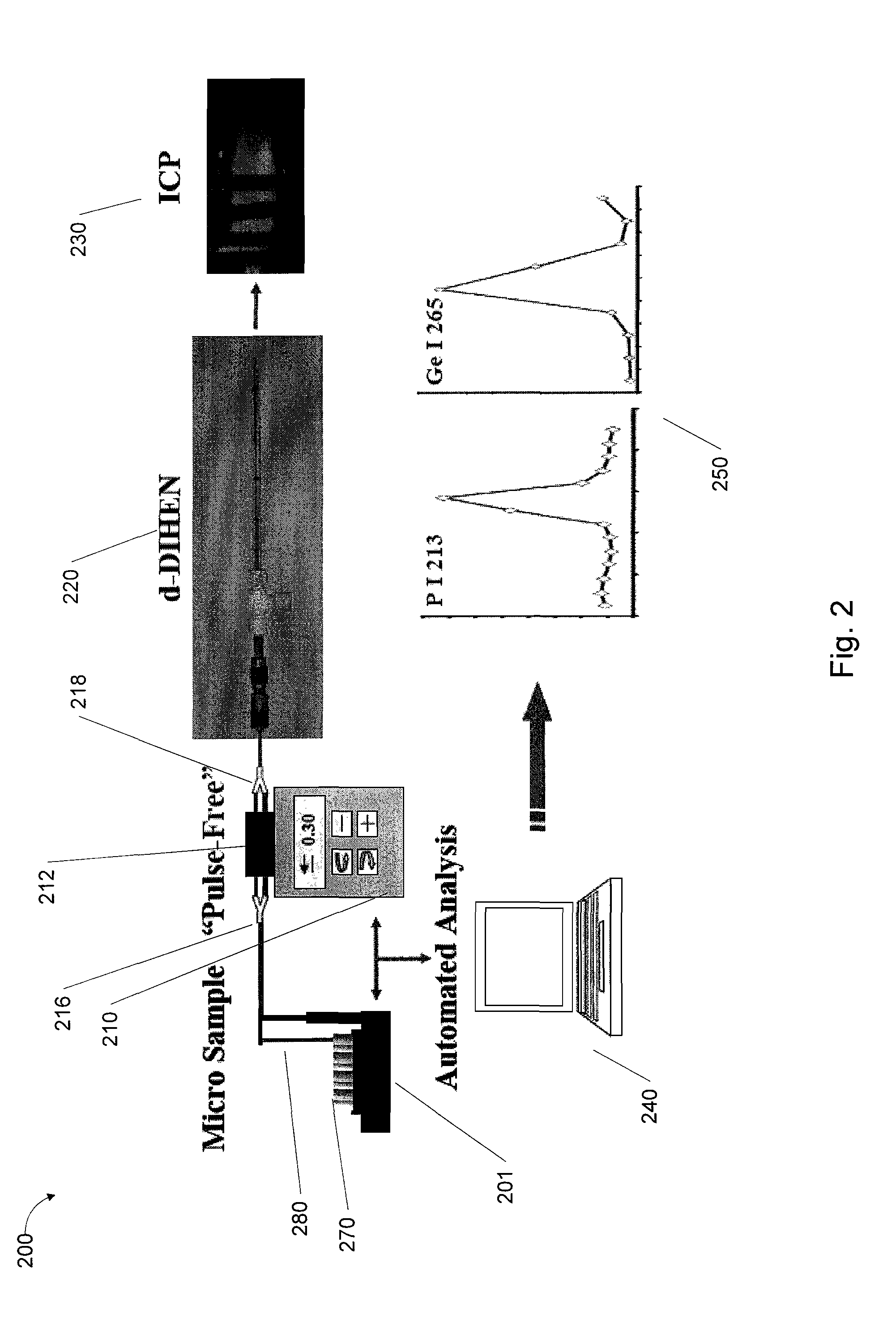System and Method For Automated Sample Introduction
a sample introduction and sample technology, applied in the field of automated sample introduction system, can solve the problems of inability to trace the technique to the si, interfere with the amplification reaction, and cannot achieve the high accuracy and precision required to produce crms for nucleic acid materials, etc., to achieve low sample uptake rate, facilitate sample introduction, and high efficiency
- Summary
- Abstract
- Description
- Claims
- Application Information
AI Technical Summary
Benefits of technology
Problems solved by technology
Method used
Image
Examples
exemplary embodiment 100
[0067]FIG. 1 is a schematic block diagram that illustrates how the “pulse-free” flow rate is achieved associated with a method, system and apparatus of the present invention, according to an exemplary embodiment 100. The wave peak in one solution line coincides with the wave trough in the other line, so that the peaks and troughs cancel each other out, thus the phase displaced solution uptake eliminates any fluctuations. This action provides a “pulse-free” flow as the two solution lines are recombined together with another y-connecter 218 downstream from the roller head.
[0068]FIG. 2 is a schematic block diagram that illustrates typical setup for coupling the d-DIHEN 220 to an ICP-OES 230 (for example, a PerkinElmer Optima 5300 DV ICP-OES), for automated 240, pulse-free analysis associated with a method, system and apparatus of the present invention, according to an exemplary embodiment 200, 250.
[0069]Since the introduction of the DIHEN series,21,22,25,26 no attempts to automate samp...
exemplary embodiment 300
[0071]FIG. 3 is a diagram that illustrates a schematic and operation of “micro-switch” to allow for automated analysis with the d-DIHEN associated with a method, system and apparatus of the present invention, according to an exemplary embodiment 300. According to an exemplary embodiment of the present invention, the schematic and operation illustrate: A) Electrical control diagram 301; B) a peristaltic pump 310, 340 with 6-pin barrier strip 312 (for example, a Gilson minipuls-3 peristaltic pump); C) a micro-switch 360 with auto-sampler probe 350 in “STOP” position 320; and D) micro-switch with auto-sampler probe 350 in “RUN” (or “START”) position 330. An exemplary embodiment of the present invention provides a micro-switch 360 to halt the peristaltic pump 310 as the sample probe 280, 350 moves from vial to vial 270, thereby eliminating the introduction of air bubbles that can destabilize the plasma.
[0072]According to exemplary embodiments of the present invention, four solutions can...
exemplary embodiment 400
[0078]FIG. 4 is a schematic block diagram that illustrates ICP-OES measurements of the average P content of the nucleotide TMP compared to the gravimetric value associated with a method, system and apparatus of the present invention, according to an exemplary embodiment 400.
[0079]According to an exemplary embodiment of the present invention, TMP samples were analyzed at three different P mass fractions, (1) 0.5 μg g−1, (2) 1.0 μg g−1, and (2) 3.0 μg g−1 P, in two trials; square—TMP (1) and diamond—TMP (2). Each trial represents the average of two experiments. Please note that the data points are offset from the x-axis value only to allow the error bars from each trial to be observed. The relative expanded uncertainties (% U) for all the TMP analyses are represented by the error bars (95% confidence level). The solid line represents the P gravimetric value, with the dashed lines representing the measurement uncertainty of the gravimetric value.
[0080]Further, FIG. 4 illustrates exempl...
PUM
| Property | Measurement | Unit |
|---|---|---|
| Fraction | aaaaa | aaaaa |
| Fraction | aaaaa | aaaaa |
| Volumetric flow rate | aaaaa | aaaaa |
Abstract
Description
Claims
Application Information
 Login to View More
Login to View More - R&D
- Intellectual Property
- Life Sciences
- Materials
- Tech Scout
- Unparalleled Data Quality
- Higher Quality Content
- 60% Fewer Hallucinations
Browse by: Latest US Patents, China's latest patents, Technical Efficacy Thesaurus, Application Domain, Technology Topic, Popular Technical Reports.
© 2025 PatSnap. All rights reserved.Legal|Privacy policy|Modern Slavery Act Transparency Statement|Sitemap|About US| Contact US: help@patsnap.com



